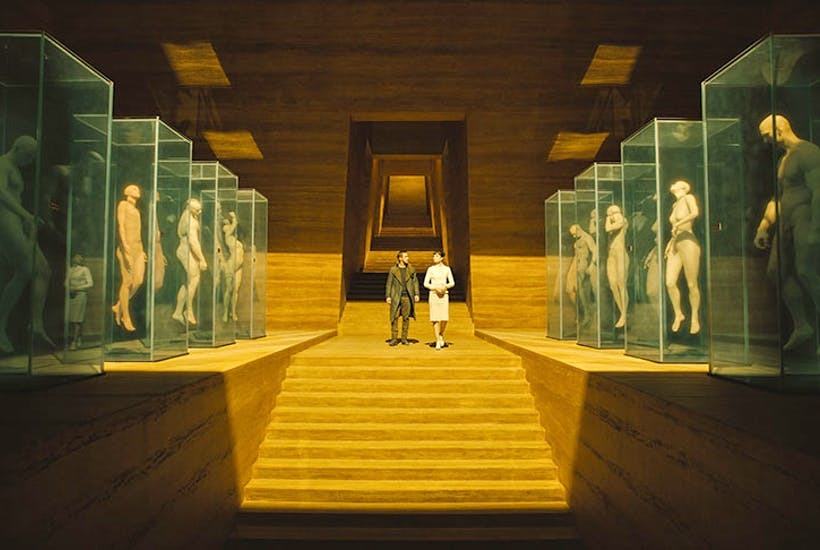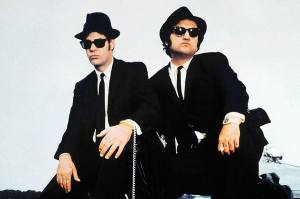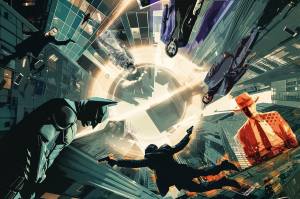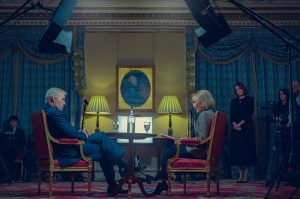Ridley Scott’s original Blade Runner first came out in cinemas 35 years ago, which I was going to say probably makes it older than some readers, although this being The Spectator, perhaps not. It wasn’t successful in its day, but has since become a beloved classic (rightly), whereas this sequel, Blade Runner 2049, will likely do great box office today, but no one will give a fig tomorrow, once all the silly hype has died away.
This is Blade Runner as a dull mainstream blockbuster populated by men who are the epitome of masculine cool and women who are needlessly sexualised fembots. And Harrison Ford doesn’t even appear until the third act, which, given the film is two hours and 45 minutes long (oh, for heaven’s sake), awards you plenty of time to wish you were… I don’t know… dead?
The 1982 original was a neo-noir which, essentially, explored the horror of not knowing if you’re real or not. Set in a dark, decaying LA, the film followed Deckard (Ford), a ‘blade runner’ charged with running down six replicants created as slave labour to help humans populate other planets (‘off-worlds’) but who returned to earth, and were in danger of developing human emotions. Thirty years later, we now have Ryan Gosling as our blade runner, K, in a world where replicants are still produced, this time by Wallace (Jared Leto), a mogul who sits atop a vast corporation and talks a lot of New Age gibberish. I think he’s meant to be evil, but he just seems like the worst kind of yoga teacher. You do have to wonder why anyone still has any faith in replicants, given their troublesome history, or why they are made so lifelike. They’d be much more useful slaves if, say, they had multiple arms shaped like shovels, plus you’d also be able to spot them a mile off. Just saying.
But back to K, who is instructed to find older replicants, ones who have outlived their programmed life expectancies, and have gone into hiding. In the film’s opening minutes he locates one such dude, and kills him, but makes a discovery that might be able to tell him not just who he is, but may overturn all thinking about replicants — and more than this, I genuinely cannot say.
At the screening I attended, a Warner Bros executive read out a letter from the director, Denis Villeneuve, asking critics not to reveal plot details, which is fair enough, but wishful thinking. The fact is, even if you subjected me to waterboarding followed by a foot-whipping, I wouldn’t be able to reveal much of anything as the storytelling is so confusingly Byzantine. Because I have no wish to show my ignorance, I conferred with another critic, who expressed the same bewilderment but has since declared it ‘a masterpiece’, as if not making sense just doesn’t matter. Well, it’s not the first time I’ve said this, but I will say it again: It. Matters. To. Me.
With Roger Deakins as the cinematographer, and with CGI now being what it is, it is often ‘visually stunning’, as they say, with spinning aerial police cars, decimated landscapes and vast rolling seas. But it never properly creates its own world, the drama is plodding, and every character is a tiresome type.
We get from Gosling that bland masculine cool. Sylvia Hoeks, as Wallace’s number two, is the icy kick-ass woman in figure-hugging get-ups that you have to have these days. There’s also a prostitute (Mackenzie Davis) because, I guess, you have to have a prostitute. As for K’s true love, she’s Joi (Ana de Armas), a kind of software-generated hologram, who can become anything he wants at any given moment: a 1950s housewife; a sex kitten; a bookish companion. Every man’s dream, one must conclude, and also she devises a way for them to have sex. K seemed to like it, but I just went: ‘urggh’.
So when Ford finally makes it to the screen, it’s such a blessed relief you want to kiss his feet. At least he can do action hero with humour, vulnerability, presence. As for any profundities, if there were any, they passed me by. I’m not saying you’ll also wish yourself dead, but the chances? Quite high.


















